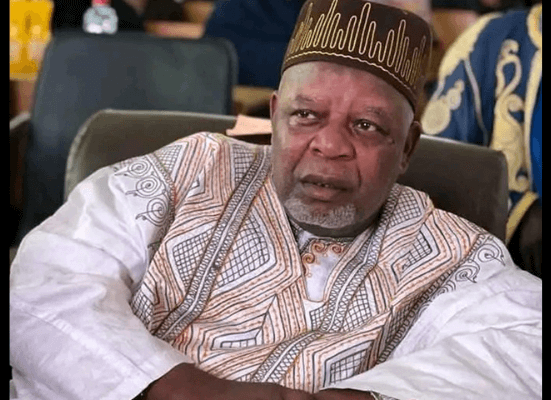Brigadier-General Maharazu Tsiga (retired), former Director-General of the National Youth Service Corps (NYSC), has shared chilling details of his 56-day ordeal in captivity following his abduction from his hometown of Tsiga in Bakori Local Government Area, Katsina State. Speaking in Abuja on Thursday during the handover of 19 rescued victims to their families, Tsiga revealed the life-threatening challenges he faced while held by bandits.
In a shocking recount, Tsiga disclosed that hyenas surrounded him and other hostages on a mountain where they were being held just a day before their release. “A day before I left there, unexpectedly, we looked around and saw hyenas parading, searching for food. And what kind of food? Us, the human beings,” he said. The hostages also frequently encountered venomous snakes and scorpions, adding to their perilous conditions.
Tsiga described how the kidnappers used high-profile captives as human shields during aerial attacks. “Whenever they were being attacked, they brought us out so that the aircraft could target us,” he revealed. In one particularly terrifying incident, a rocket aimed at them failed to detonate. “They carried that rocket to where I was sleeping and hid it there so that immediately I woke up and touched it, it would explode. But God is merciful,” he recounted.
The retired general also highlighted the kidnappers’ peculiar mindset, noting their belief that government officials in uniform always had access to money. This belief led them to break into his house with explosives during the abduction. “They made claims that some of us are in uniform, and the government always puts money for us to keep,” he said.
Tsiga painted a grim picture of life in captivity, where food was scarce and often unsuitable for his health condition. “We were given food only once a week Tuwo Dawa and I am hypotensive. The only thing they could use was salt. Even if you are not a doctor, you know that there are foods people with hypertension should not eat,” he explained. The physical toll of captivity left him weak and unable to climb stairs.
Despite these hardships, Tsiga emphasized the importance of collective efforts in combating insecurity. “We should not sit down and believe that the government can do it alone. Security is a collective responsibility,” he stated, urging citizens to provide timely and accurate intelligence to security agencies.
Ambassador Gideon Yohana, another rescued victim, expressed gratitude to the Office of the National Security Adviser and security agencies for their efforts in securing their release. He acknowledged improvements in security across states like Zamfara, Sokoto, Katsina, and Niger but stressed the need for continued vigilance.
Tsiga’s abduction on February 5th had sent shockwaves through Katsina State, leading to fear-driven mass evacuations from his hometown. While conflicting reports emerged about ransom payments ranging from ₦60 million to thrice higher the retired general’s eventual release marked a bittersweet victory against rising insecurity in Nigeria’s northern region.

